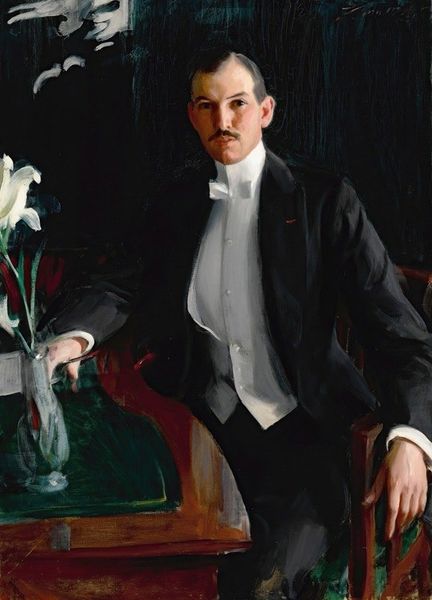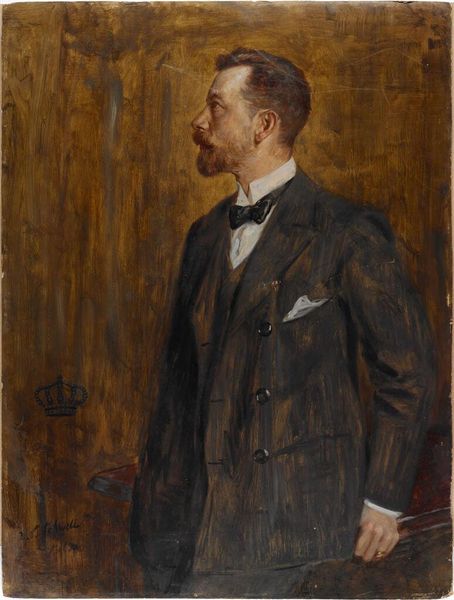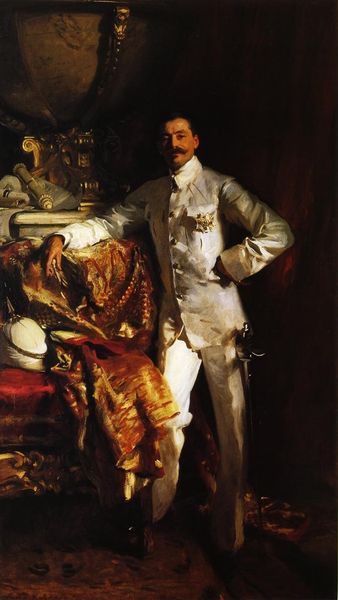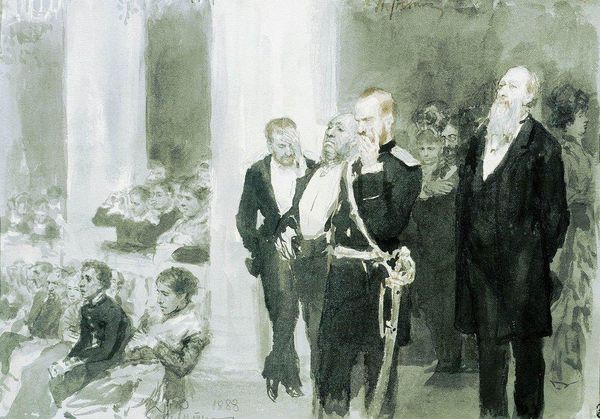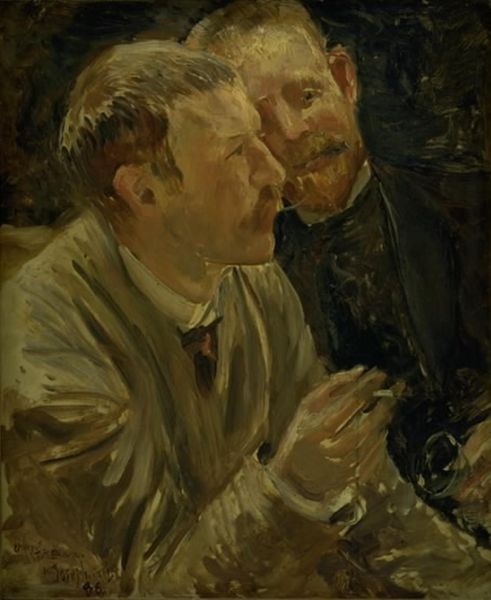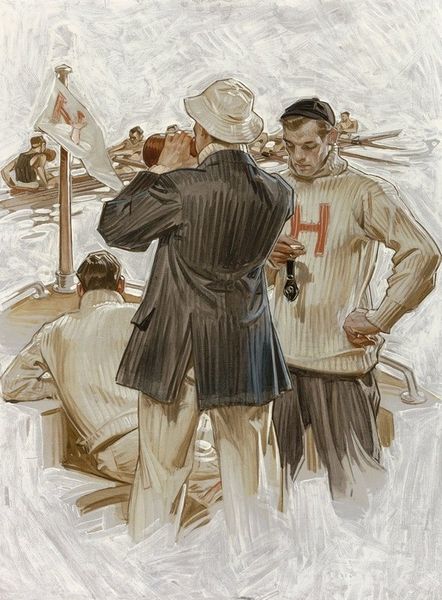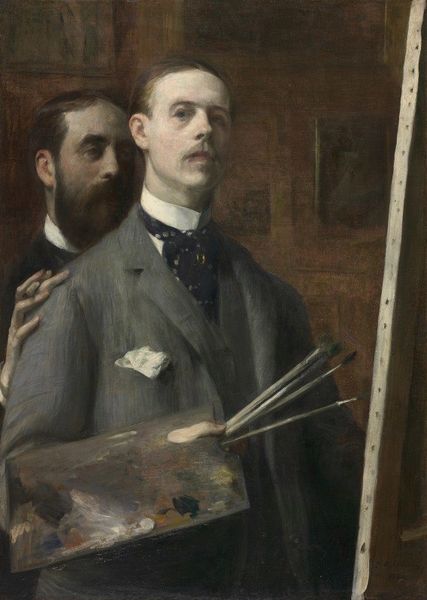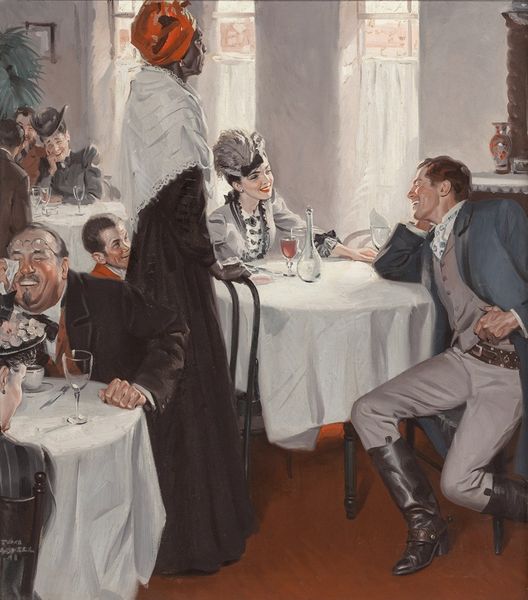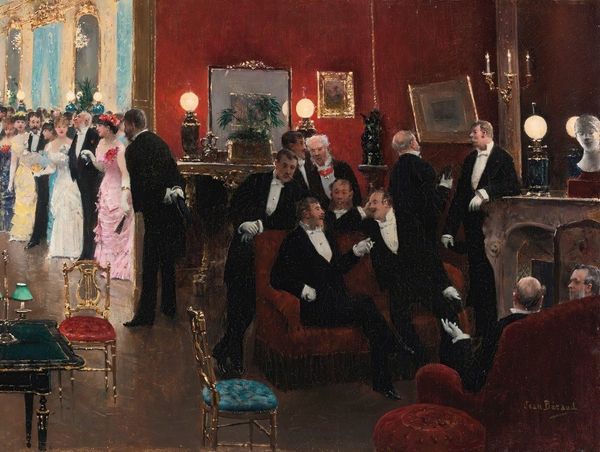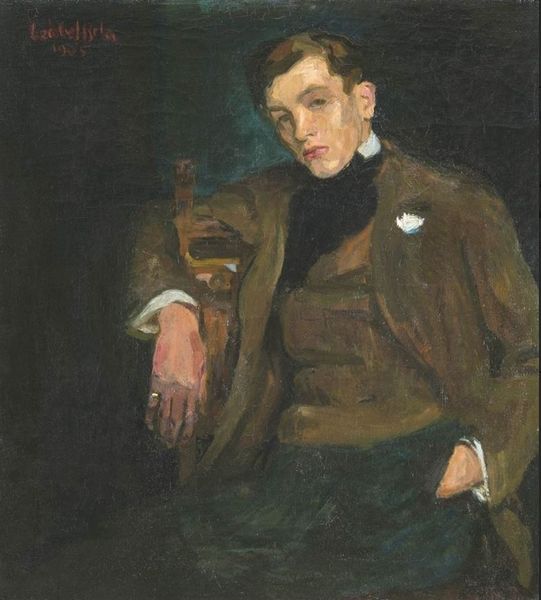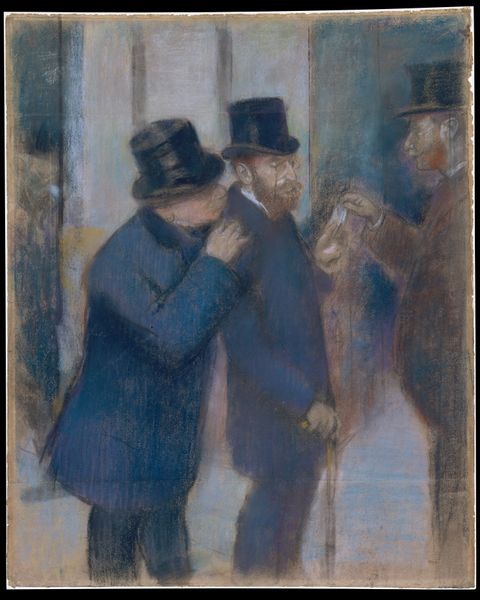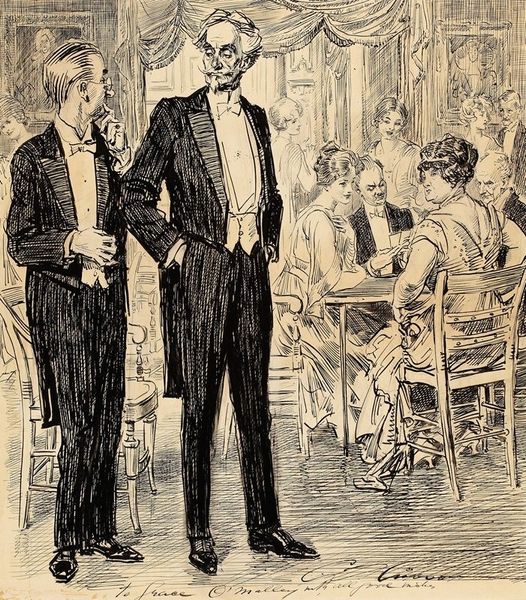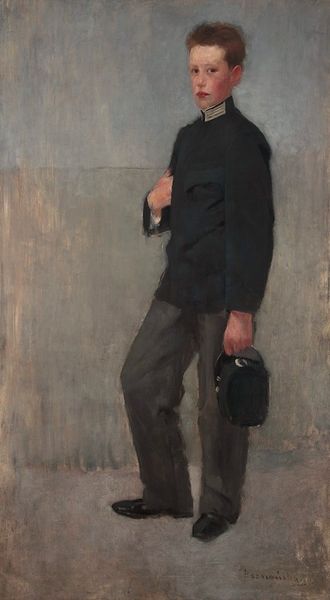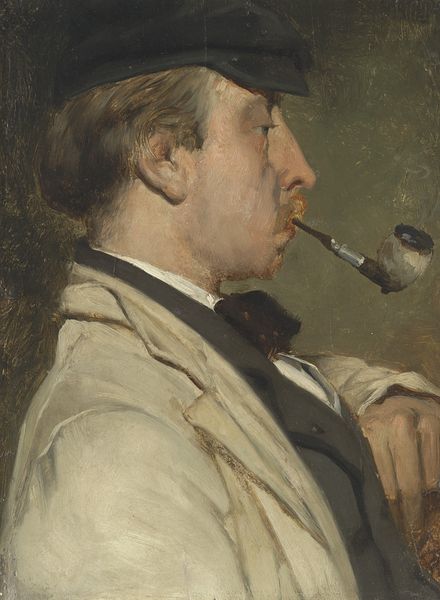
painting
#
portrait
#
character portrait
#
painting
#
portrait reference
#
portrait head and shoulder
#
portrait drawing
#
facial study
#
genre-painting
#
facial portrait
#
academic-art
#
portrait art
#
fine art portrait
#
celebrity portrait
#
digital portrait
Copyright: Public Domain: Artvee
Editor: This is "The Donchester – the Cluett Dress Shirt" painted in 1911 by J.C. Leyendecker. It's quite a formal scene, and the use of light really makes the figures pop. I’m curious, what do you see beyond the surface elegance? Curator: Beyond the initial impression of elegance, I see a representation deeply embedded in early 20th-century ideals of masculinity and class. Look at the crisp tailoring, the deliberate pose – it’s all carefully constructed to project a certain image. How do you think this image interacts with contemporary understandings of gender and consumerism? Editor: I guess it feels a bit… performative, like they are embodying a very specific role. The shirt almost feels like armor. Curator: Precisely! And armor against what? Consider the socio-economic changes happening at the time. This image normalizes a certain aspirational lifestyle accessible only to a few, thus reinforcing existing social hierarchies. What do you make of their subtle interaction, their almost theatrical poses? Editor: They seem caught in a private conversation, maybe negotiating power dynamics, even. It's not just about selling a shirt, is it? Curator: Exactly. Leyendecker's genius was to infuse the commercial with cultural narratives. This advert reflects, and reinforces, the aspirations and anxieties of the time, creating a desire not just for a shirt, but for belonging. Have your perceptions of the image changed? Editor: Absolutely. It’s no longer just an ad; it’s a window into the social fabric of the past. Curator: Indeed. Art often holds up a mirror to society, and sometimes, a magnifying glass.
Comments
No comments
Be the first to comment and join the conversation on the ultimate creative platform.
